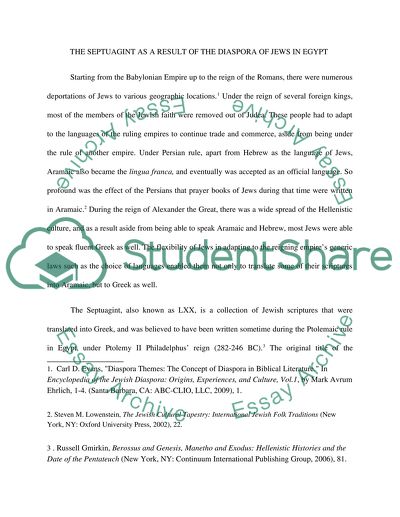Cite this document
(“The septuagint as a result of the diaspora of Jews in Egypt Research Paper”, n.d.)
The septuagint as a result of the diaspora of Jews in Egypt Research Paper. Retrieved from https://studentshare.org/religion-and-theology/1455505-intertestamental-period-paper
The septuagint as a result of the diaspora of Jews in Egypt Research Paper. Retrieved from https://studentshare.org/religion-and-theology/1455505-intertestamental-period-paper
(The Septuagint As a Result of the Diaspora of Jews in Egypt Research Paper)
The Septuagint As a Result of the Diaspora of Jews in Egypt Research Paper. https://studentshare.org/religion-and-theology/1455505-intertestamental-period-paper.
The Septuagint As a Result of the Diaspora of Jews in Egypt Research Paper. https://studentshare.org/religion-and-theology/1455505-intertestamental-period-paper.
“The Septuagint As a Result of the Diaspora of Jews in Egypt Research Paper”, n.d. https://studentshare.org/religion-and-theology/1455505-intertestamental-period-paper.


